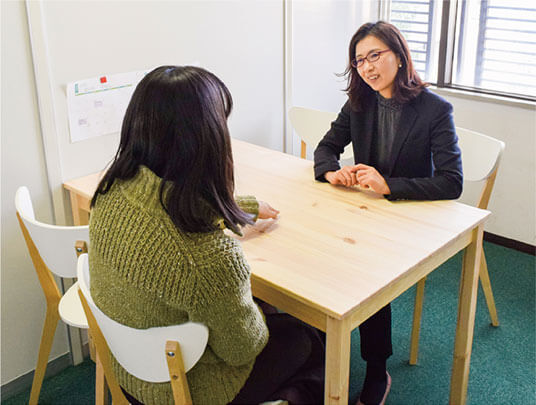Context: At the start of the new millennium, changes in Japan’s economic and social structure and in the global environment greatly shook and uneased the young Japanese population. As the country’s economic bubble burst and its corporations restructured, job instability was at its peak and new graduates struggled to find employment. This context gave rise to an all-time high in “freeters”- part-time workers and those who want part-time jobs – and NEETs – people not in employment, education or training – amongst Japan’s youth.
The Government responded to the growing uneasiness of its young population by introducing the first National Youth Development Policy in 2003. The policy highlighted Japan’s commitment towards its youth by proposing supportive policies and recommendations. The Government’s efforts, together with the nation’s economic recovery, eventually improved young people’s employment prospects. Nevertheless, although progress was made, in 2012, some 4.9 per cent of Japan’s high school graduates and 15.5 per cent of its university graduates neither advanced to higher learning nor obtained employment. Moreover, the youth unemployment rate remains consistently higher than that of the population as a whole.
Implementation of programme/ initiative: Backed up by the Ministry of Health, Labor and Welfare, Regional Youth Support Stations (RYSSs) were set up throughout Japan to support NEETs. Launched in 2006 with 25 installations, today the number of Stations have increased to 175. Through individualized professional counselling and guidance, RYSSs aid young people who do not feel job-ready to overcome personal barriers to employment. The Stations provide local, free of charge, intensive support to vulnerable youth by offering personal career counselling and group activity sessions. They also offer interview preparations, business seminars and vocational workplace experiences through cooperative relationships established with companies.
Each individual RYSSs staff member is dedicated to a low number of cases, enabling a customized approach to each young person. Some Stations also offer e-mail and telephone assistance. Initially RYSSs supported both out-of-school youth and students at risk of dropping out of education. However, most Stations currently address only NEETs and focus on the need to energize and boost the confidence of withdrawn young people to help them gain economic independence and an active role within their communities.
Main challenges: When most Stations turned their focus to NEETs, leaving potential school drop-outs beyond their scope, the cooperation of RYSSs with schools considerably weakened. Today, even when the most disadvantaged out-of-school youth might benefit from the Stations’ more focused approach to NEETs, the lack of coordination between schools and RYSSs leaves at-risk young people largely unsupported. In fact, a system as that promoted by RYSSs, which depends entirely on young people’s self-referrals in order to offer its support, would have a much greater attendance of those who might need it if schools and RYSSs worked closely together. For example, schools could refer potential drop-outs to receive the needed RYSSs support, and avoid that they become NEETs to begin with.
Results achieved: RYSSs have had a total of 474,749 young people that reached out for support, out of which 89 per cent found jobs in less than a year of having approached the support Stations. Moreover, out of the people who registered in 2018, approximately 8,930 are now employed. RYSSs’ popularity is also evidenced by the number of youth newly registered in the system, which is now as high as 16,122 nationwide.
Moving Forward: A key policy recommendation made to RYSSs has been to improve their outreach by increasing collaboration with schools. Building a sense of familiarity with the way RYSSs work is essential for inactive young people to trust the Stations to provide the support system they need. For this, a close partnership between schools and RYSSs could raise young people’s awareness of the type of support system they may find in RYSSs and drive them to seek support at an earlier stage.
Replicability: Replicable from RYSSs is its image of trustworthiness and confidentiality. Its staff hold a non-judgemental standpoint, and work closely and in an individualized manner with the young people that approach the Stations. RYSSs’ position as friendly safe-havens where vulnerable youth may share their feelings of unease, as also reflected in their webpage, is key to making at-risk youth feel accompanied through the challenging process of finding their way into the job market.
References:
http://www.youthpolicy.org/national/Japan_2008_National_Youth_Development_Policy.pdf
https://www8.cao.go.jp/youth/suisin/pdf/vision_english.pdf
https://www.oecd-ilibrary.org/docserver/9789264275898-en.pdf?expires=1557383015&id=id&accname=ocid195767&checksum=908EA80743087025C6964BBAFD167D77
https://www.oecd.org/els/soc/Investing-in-Youth-Japan-bilingual-booklet.pdf
https://www.mhlw.go.jp/stf/seisakunitsuite/bunya/koyou_roudou/jinzaikaihatsu/saposute.html
https://saposute-net.mhlw.go.jp/https://www8.cao.go.jp/youth/english/policy_2013.html
Acknowledgements:
This good practice was kindly prepared by Ms. Victoria Mulville.
Project Details
Date: May 13, 2019
